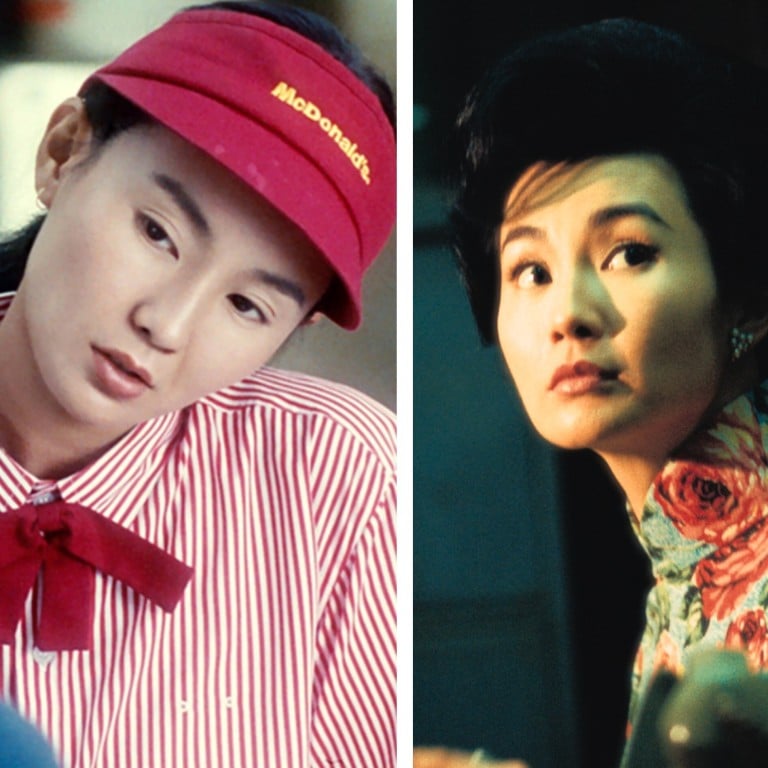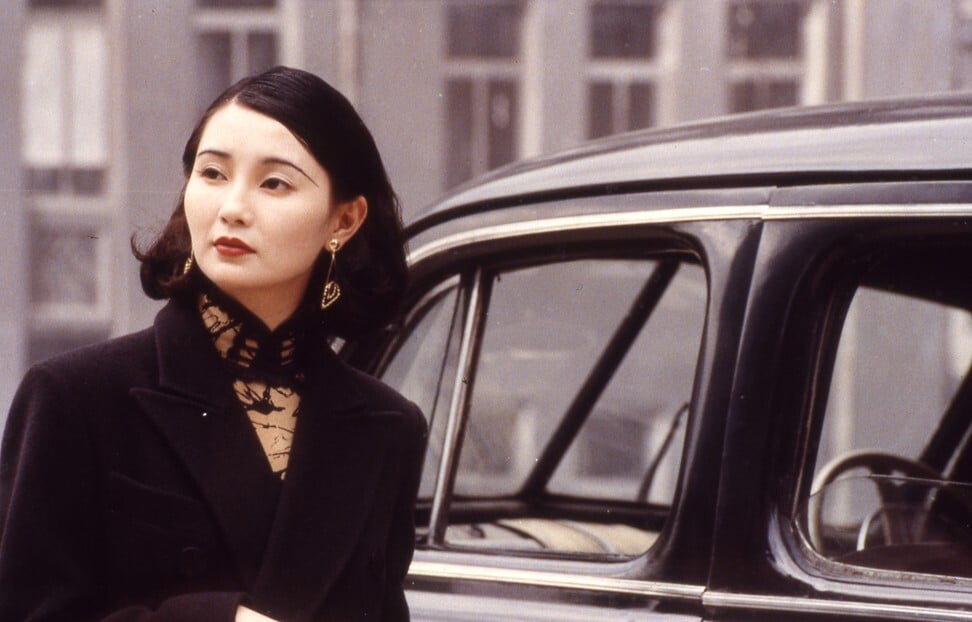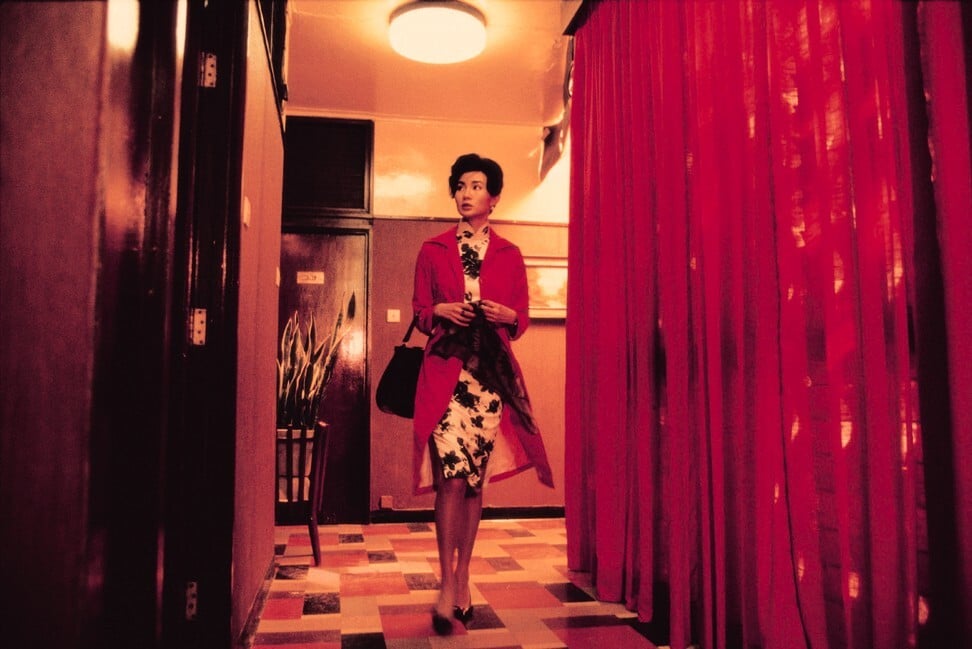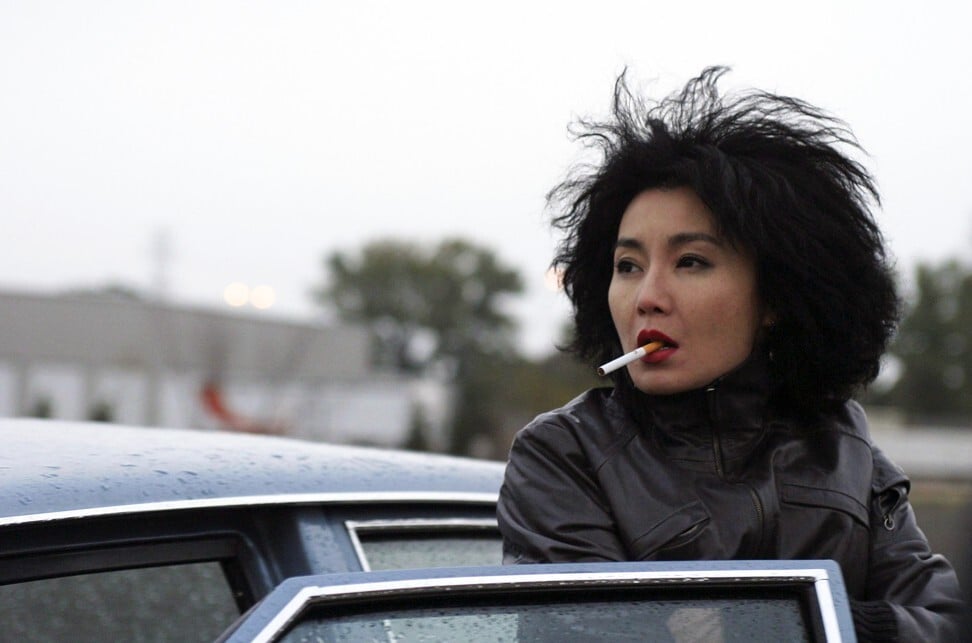Maggie Cheung’s 7 most iconic roles: from Wong Kar-wai’s In The Mood For Love to Clean and The Heroic Trio – the best of a Hong Kong movie legend

Throughout her career Cheung has starred in both high and lowbrow films, from zany Hong Kong comedies to European art house offerings. Her elective oeuvre means she not only has many classics movies to her name but also many memorable roles – here are seven of her most iconic.
Hong Kong movie quiz: how many of these 80s classics can you name?
As Tears Go By
Although she hadn’t featured in a great number of films by this point, Maggie Cheung was already a well-known face by the time she was selected for Wong Kar-wai’s directorial debut – Police Story and Project A: Part II, another Jackie Chan success story, both saw to that. This, though, was her first opportunity at serious dramatic acting.
She plays Ah Ngor, a poorly girl living on Lantau Island who regularly travels to Kowloon for medical treatment. Cheung excels in this role, providing her character with a suitable mix of frailty and vulnerability that explains why she falls in love with Ha-tau, her gangster cousin, played by Andy Lau.
STYLE Edit: Why Maggie Cheung loves the Chinese symbolism of Qeelin jewellery
Centre Stage

Stanley Kwan’s ambitious docudrama chronicles the life of Ruan Ling-yu, an actress popular during China’s silent film era, who committed suicide in 1935 at the age of 25. Cheung gives a masterful performance as Ruan, perfectly capturing the character and movements of the other actress – something that becomes apparent when real-life footage of Ruan plays within Centre Stage.
That is just one of Kwan’s meta tricks in this film, and one can’t help seeing Cheung’s own position at the time (in the early 90s) reflected in Ruan’s – two popular actresses hounded by a tabloid press that simultaneously elevated them as stars while questioning their artistic talent and sniffing around for gossip. It was for this film that Cheung won her Silver Bear award in 1992.
How Hong Kong’s film industry got so big – and why it fell into decline
The Heroic Trio
Following her success in Europe, Cheung was established as a serious actress of note. However, that didn’t mean she stopped doing popular, crowd-pleasing genre films. Just a year after Centre Stage she starred in director Johnnie To’s The Heroic Trio, a distinctly Hong Kong spin on super hero films.
5 Stephen Chow movies that made him Hong Kong’s comedy king
Comrades: Almost a Love Story
One of the most critically acclaimed Hong Kong movies of all time – it won nine Hong Kong Film Awards, including best actress – Comrades is anchored by Maggie Cheung’s exceptional portrayal of Lee Kiu, a mainlander recently arrived in Hong Kong and starting a new life. Her romance with another new arrival, Leon Lai’s Lai Siu-kwan, is pitch perfect. It is never over egged and avoids mainly of the common melodramatic tropes that can dog films of this type.
Lee’s transformation from a money obsessed immigrant to a more caring and considerate person who realises she needs more than just money in her life is startling. Unsurprisingly, this remains one of the most popular Hong Kong films of the 90s.
Legendary Hong Kong director Johnnie To’s 5 most underrated films
Irma Vep
One of Cheung’s less well-known but most memorable looks appears in Irma Vep, a film she made with French director and future husband Olivier Assayas. Another meta production, similar to Centre Stage, Cheung plays herself shooting a film in Paris about a cat burglar.
Much of the movie deals with the behind-the-scenes shenanigans that result from cast and crew failing to grasp director Assayas’s pretentious waffle about what is meant to be happening and the meaning of cinema. Cheung is stuffed into a tight black, latex rubber catsuit for the role and watching her slink around the set and committing pretend burglaries is not only eye-catching but hugely fun.
Betty Ting Pei: the last person to see Bruce Lee alive
In the Mood for Love

7 reasons Donnie Yen is a worthy heir to Bruce Lee
Clean

Cheung’s last major role to date is the one for which she was awarded the best actress prize at the Cannes Film Festival in 2004. Here, she plays Emily Wang, a drug addict with a son via her tempestuous relationship with a rock musician. Cheung truly inhabits her character here, successfully showing her personal journey from a prickly, self-centred video jockey to a mother more aware of her roles and responsibilities and her place in the world.
Equally, as a global citizen, Cheung’s Emily moves effortlessly between Vancouver, Paris and London, speaking English, French and Cantonese. It’s doubtful anyone could have played this role as well as Cheung.
Want more stories like this? Sign up here. Follow STYLE on Facebook, Instagram, YouTube and Twitter .

Called the most talented Chinese actress of her generation, Maggie Cheung may be unofficially retired, but her star shines on in films as diverse as Clean and In The Mood For Love – we look back at 7 of her best movies